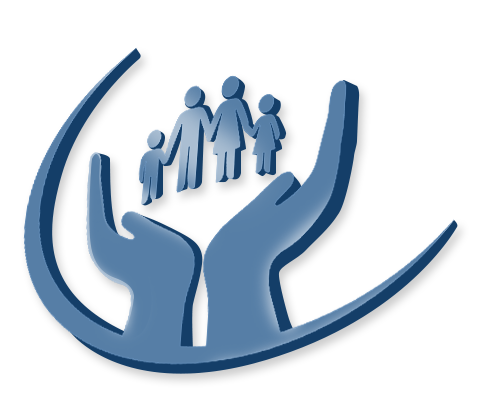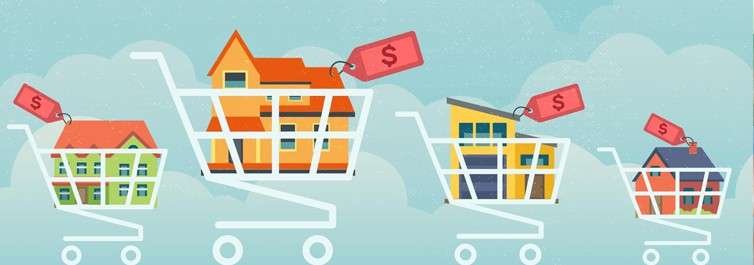The costs associated with buying a house include much more than the mortgage
Congratulations! You’ve decided to buy a home. But while you’ve been saving for a down payment and budgeting for a mortgage, you may not be entirely aware of all the other costs the may be involved in the house-buying process.
Not to worry. We’ve put together a list of the most common home-buying expenses you’ll want to budget for while on the hunt for your dream house.
Here is a Quick Look at the Most Common Types of Mortgage Loans
Before delving into other home-buying expenses, it’s worth starting with the mortgage and the different types of loans that are available. After all, the type of loan you get can affect your down payment and the price of your home over the length of your mortgage.
Fixed Rate: This kind of mortgage is paid back over a set period of time with an interest rate that remains consistent for the duration of the loan. The loan can be as short as 5 years, but is generally set for 15 or 30, with 30 years being the most popular loan length.
FHA: Government-backed Federal Housing Administration (FHA) loans allow homebuyers with lower credit scores and a smaller down payment to purchase a home. This loan also requires that you carry private mortgage insurance (PMI), an additional fee you’ll need to factor into your mortgage payment.
VA: VA loans are designed to help military service members, veterans and eligible surviving spouses purchase a home. These loans have a low or no down payment and low interest. The VA guarantees a portion of the loan.
Adjustable Rate Mortgage (ARM): An ARM features an interest rate that changes over the course of the loan, generally going up after five, seven or 10 years. While the initial lower interest rate can be enticing, the change in loan interest can become a financial complication for homeowners.
Do you have questions about what mortgage you should choose? We’re happy to help! Contact us and we’ll help you determine what kind of loan is right for you. We offer both fixed-rate and ARM mortgages.
As you think about what loan type might work best for you, be sure to consider the following factors:
- What can you afford? Be sure to factor in things like current wages and what you’re paying in rent.
- How much do you have for a down payment?
- What is your credit score? If you don’t know, you can check it using a variety of apps and websites.
- How long do you plan to be in your home? If, for example, you’re planning to move or purchase a different home in five years, an ARM may save you money.
Do you want to know how much your dream home will cost per month? Our mortgage calculator will help you visualize your possible monthly mortgage.
Take a Look at the (Maybe Unexpected) Expenses You Have When Buying a Home
Home Buying 101: A Closer Look at Earnest Money
An earnest money deposit is not a down payment. It is a smaller deposit paid by the home buyer to demonstrate that they are serious about buying the house. This deposit is typically somewhere between 1 percent and 3 percent of the cost of the house, though this varies from state to state.
Buyers are asked to pay earnest money because without it, buyers could potentially sign contracts on multiple homes at no cost, preventing those homes from finding other sellers.
Once the seller agrees to the buyer’s contract, the earnest money then becomes part of the down payment or closing costs. If the buyer decides not to purchase the home or the seller doesn’t agree to the buyer’s terms, the money is generally returned to the buyer, though this, too, varies from state to state.
What to Consider when Making a Home Down Payment
A down payment is the first large payment made during the home purchasing process. While earnest money shows you want to buy a home, a down payment indicates that you are, in fact, buying a home.
The amount of money that goes into a down payment can vary a great deal, based primarily on the type of mortgage loan you plan on securing.
If you plan on securing a fixed rate or adjustable rate mortgage, you may want to consider a 20 percent deposit on the home to avoid paying private mortgage insurance. While most home buyers put down much less (national average is 6 percent), the bonus to a larger down payment is saving money in the long run with lower interest payments and forgoing mortgage insurance. We should also note that once you build up a total of 20 percent equity in your home, PMI is removed, leaving you to pay the mortgage balance plus interest.
Ultimately, the more money you can pay up front, the more money you’ll save in the end.
Get Details on Everything Included in Home Closing costs
Closing costs average anywhere from 2 percent to 5 percent of the cost of your new home. These fees can vary from state to state, and even from one lender to another, and may include everything from application fees to accessing credit reports to title insurance to taxes.
These fees can usually either be paid as part of the sale, or rolled into the mortgage. It is worth noting that making these fees part of your mortgage means you you’ll pay more in the long run, as you will then be paying interest on the fees.
Why It’s So Important to Have a Home Inspection
On average, a home inspection will cost about $400, though prices vary depending on your location, size of the home and other factors. While you may be tempted to avoid having to pay yet another fee during the home buying process, a home inspection can save you a great deal of heartache and money in the future. By locating major issues that should be repaired before you move in, or minor issues that will require repair or updating in the future, you can avoid buying a home that may require significant maintenance expenses.
The inspector will thoroughly investigate visible, accessible parts of the home and property, though certain conditions (for example, snow or an enclosed crawlspace) may make it difficult or impossible to fully examine certain parts of the home. The inspector will primarily hunt for problems with major systems, including electrical; heating, ventilation, and air conditioning (HVAC); plumbing; and the foundation.
If the inspector finds a problem, they will offer recommendations for repairs. However, if and how these repairs are addressed is ultimately between the buyer and the seller. Depending on the nature of the problem, the buyer and seller must come to a mutual agreement as to how to proceed. Options include:
- The seller can pay for the repairs to the house before the sale of the house is complete.
- The seller can offer to lower the price of the house, and the buyer can handle the repairs themselves.
- The buyer and seller may choose the share the cost of the repair work.
- The buyer can choose to back out of the sale, citing the problems that the home inspector discovered.
5 Other Expenses You Should Plan for When Buying a Home
While you might have set aside all the money you think you need to purchase your home, there are other costs of owning a home that you’ll want to budget for. Here are five major ones:
Property taxes: Property taxes are taken by taxing authorities (i.e. the city) to cover the costs of services. Many home owners choose to place this amount in escrow via your mortgage. This turns the tax bill into part of your monthly mortgage expense, preventing you from spending the money elsewhere and being unable to pay your tax bill when it arrives.
Insurance: Homeowners insurance is required, and generally cost between $300 and $1,000 a year. Costs are based on more factors than the value of your home. Those include whether you have any valuables on the premises, the amount of your deductible, and discounts from your carrier. You’ll want to contact an insurance agent to discuss these costs. This cost can also be rolled into your escrow account.
Homeowners association fee (HOA fee): HOA fees are the one expense in this list that you may or may not have to pay. They are a general maintenance fee usually associated with condominiums, gated communities or neighborhoods with shared amenities, such as ponds and walking trails. If you’re not sure if your house will have this fee, talk to your real estate agent.
Greater utility costs: Utility costs can cause sticker shock for people moving from an apartment into their first home. Since these costs are no longer shared by an entire building, the amount you’ll pay for utilities will almost certainly increase. It’s recommended that you add approximately $3,000 to your budget to cover additional utility fees in your new home, though this can vary based on everything from the age of your home and HVAC systems to the size of your house to weather extremes in your area. Contact your local utility company to learn the average monthly cost in your area.
Maintenance: As a homeowner, you will be responsible for the maintenance of your home, including mowing your lawn and shoveling snow. It’s also wise to have an emergency fund for any future home repair costs. It’s also not unusual for most people to have immediate expenses after moving in, from changing the locks to painting the interior, to purchasing a lawnmower.
If you’re ready to buy a home, give us a call at 800-963-1937. We’ll help you find the mortgage that’s right for you, as well as offer advice and assistance on handling the associated costs of home purchasing. If you’re a first-time homebuyer, check out our blog, which walks first-time homebuyers through all the steps they need to know.

